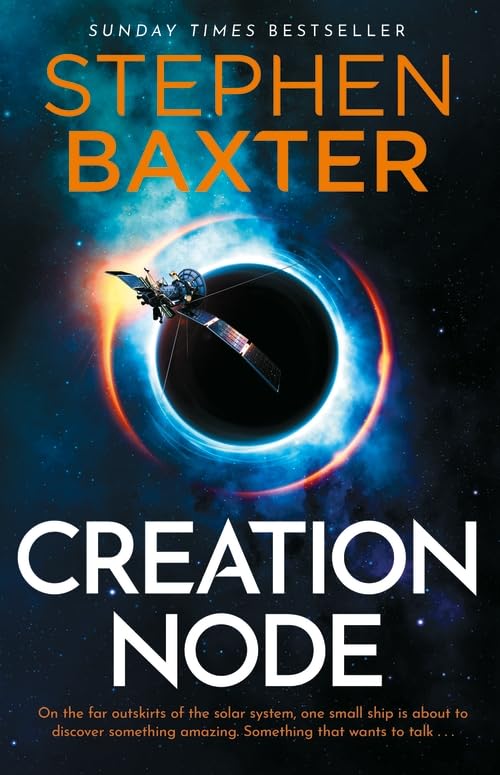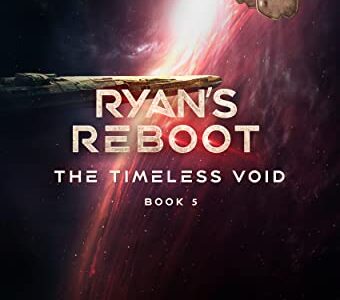Pros
- Interesting premise with the story and Planet Nine
- Mystery of the discovery on Planet Nine is interesting enough to carry the story
- Based on some fascinating theories about the universe
Cons
- Story feels a bit disjointed with the time jumps
- Writing can be a little too expository at times, leading to a slower pace
Creation Node Review
Creation Node by Stephen Baxter is a slow but intriguing story whose premise and conjectures about the universe are fascinating enough to keep readers engaged throughout the story.
The story follows a protagonist, Salma, who is born during an interplanetary flight from Earth to the predicted location of the mysterious Planet Nine. Born during this decades-long journey, Salma’s only world is contained within the spaceship Shadow and its much older crew of conservers, a political faction whose goal is to live in harmony with the universe rather than to exploit it.
But the story isn’t focused on the journey and its hardships, nor is it really focused on the different political factions of Earth and Moon and their sometimes conflicting goals. These factions are perhaps a natural result of the splintering of humanity in space, as illustrated by many science fiction stories like The Expanse.
Naturally, the needs of people on Earth are going to be drastically different from the needs of the people on the Moon. These different factions, represented by different members of the party that eventually congregate on Planet Nine, must learn to work together for the greater good of humanity.
What the crew of the Shadow discover at the enigmatic Planet Nine has the potential to change the ultimate destiny of humankind for the rest of eternity. In fact, it’s this mystery and the crew’s attempt to understand and unravel this mystery that makes Creation Node so intriguing, especially as many of the scientific theories are relevant and considered today.
Ardent science fiction readers won’t find many of the theories or musings in this book particularly new, but those who are not familiar with the theories Baxter discusses will enjoy what likely brings them to science fiction to begin with: its ability to push the boundaries of theory and imagination to as yet unexplored lands.
But for those who have read much of science fiction, some of the discussions among the characters, particularly with Salma, who is used as a stand-in for perhaps the target audience, the exposition may feel a bit dragged out and long. There’s really not much of a choice here for science fiction writers. Either they explain the theories and risk boring readers or they assume readers know and risk alienating those new to the ideas.
Regardless, small team of four characters, including Salma, are ultimately united on the surface of Planet Nine through their strange obsidian-like pendant.
Terminus’ actions and its revelation of the nature of the universe for the pioneers on Planet Nine are quite interesting, and the mere possibility alone speaks to a greater, broader, deeper possibility about the nature of reality, whatever that is.
It’s no wonder that Salma and the others make the decision they choose to make at the end. While the conclusion of the story does leave a lot to be desired—the ultimate fate of those who chose to be left behind and their strange fiend, the question of the pendants, the fate of a humanity that chose to be left to its own singular fate—the theories explored through the book are enough to keep kindle and ignite the imagination.
Creation Node by Stephen Baxter is more of a cerebral science fiction story that takes for its premise some scientific theories that may not be very well known by readers. In exploring these theories to their conclusions, Baxter reveals to readers a universe that is both far more expansive than it appears and perhaps a little more lonely.
Read reviews of other interesting science fiction books below.




[…] Creation Node by Stephen Baxter […]